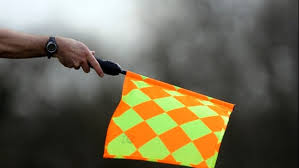By Andrew Warshaw
April 12 – The English Premier League’s decision to introduce goalline technology in time for next season has been lauded by most of football’s participants, not least the fans.
Choosing Hawk-Eye over the other three systems available was always likely to be the outcome given its track record in other sports and that it was one of the first products on the scene when it came to pulling football into the modern age.
But on the same day the Premier League made history by becoming the first to approve such technology, the Spanish were making some attention-grabbing remarks that will have been picked up by UEFA President Michel Platini.
Francisco Roca, CEO of La Liga, speaking at this week’s Soccerex conference in Manchester, said that although he supported GLT it was likely to be at least two or three years before it would be introduced in his country.
“We are total advocates of this technology,” he said. “We need to see which system is less expensive. We won’t be as quick as the Premier League but I expect in two or three years to do something about this. But we completely agree with the technological revolution to help the game and also to help the referees.”
Then, unexpectedly, Roca threw in an addendum by declaring that Spain also wanted to look at further technologies which could help referees make decisions for other incidents.
“GLT is something everybody should have but we’re also looking into offside technology,” said Roca. “We’ve seen over the past few weeks the problems. I think the technology is there and we can come up with solutions to help the referee make these calls.”
“Helping refereeing is essential because this has become a huge business with enormous implications. It’s really sad when you see mistakes that are honest mistakes but affecting in a big way the outcome of a football match.”
“We’ve seen especially … in the last few weeks the real problems that referees have differentiating when it is an offside position. Right now the technology is there, we can come up with solutions to help referees to make good calls and not bad calls.”
Such words will undoubtedly have quickly been passed on to Platini by his office in Nyon just outside Geneva. The UEFA president, a fierce opponent of scientific aids for football, has long warned that goalline technology would be the start of a slippery slope towards other areas of the sport being dissected in the same way.
Many felt Platini was just clutching at straws, a lone voice eager to promote his alternative, if highly flawed, system of having two additional pairs of eyes to help referees make the correct calls. But Roca’s remarks suggest the UEFA boss, rightly or wrongly, might have a point, one which his organisation now seem bound to exploit at future public forums.
Nevertheless the Premier League’s decision, supported by the English FA who will install technology for the first time at the Community Shield in August, was hailed as a significant breakthrough by almost all the game’s stakeholders.
“It’s something that people in football have wanted for a long, long time,” England manager Roy Hodgson told delegates at Soccerex. “It has been a big debate and it was pushed back but it’s great now to see that everyone is on the same page and that they have introduced it. At least it will stop some of those gross injustices that we have seen in recent years where goals have obviously been scored and not allowed.”
“It will rank alongside days like the changing of the offside law, and not least the backpass to the goalkeeper law which many of us were very sceptical about at the time but now we have taken to our hearts and appreciate it.”
Contact the writer of this story at moc.l1751965938labto1751965938ofdlr1751965938owedi1751965938sni@w1751965938ahsra1751965938w.wer1751965938dna1751965938

